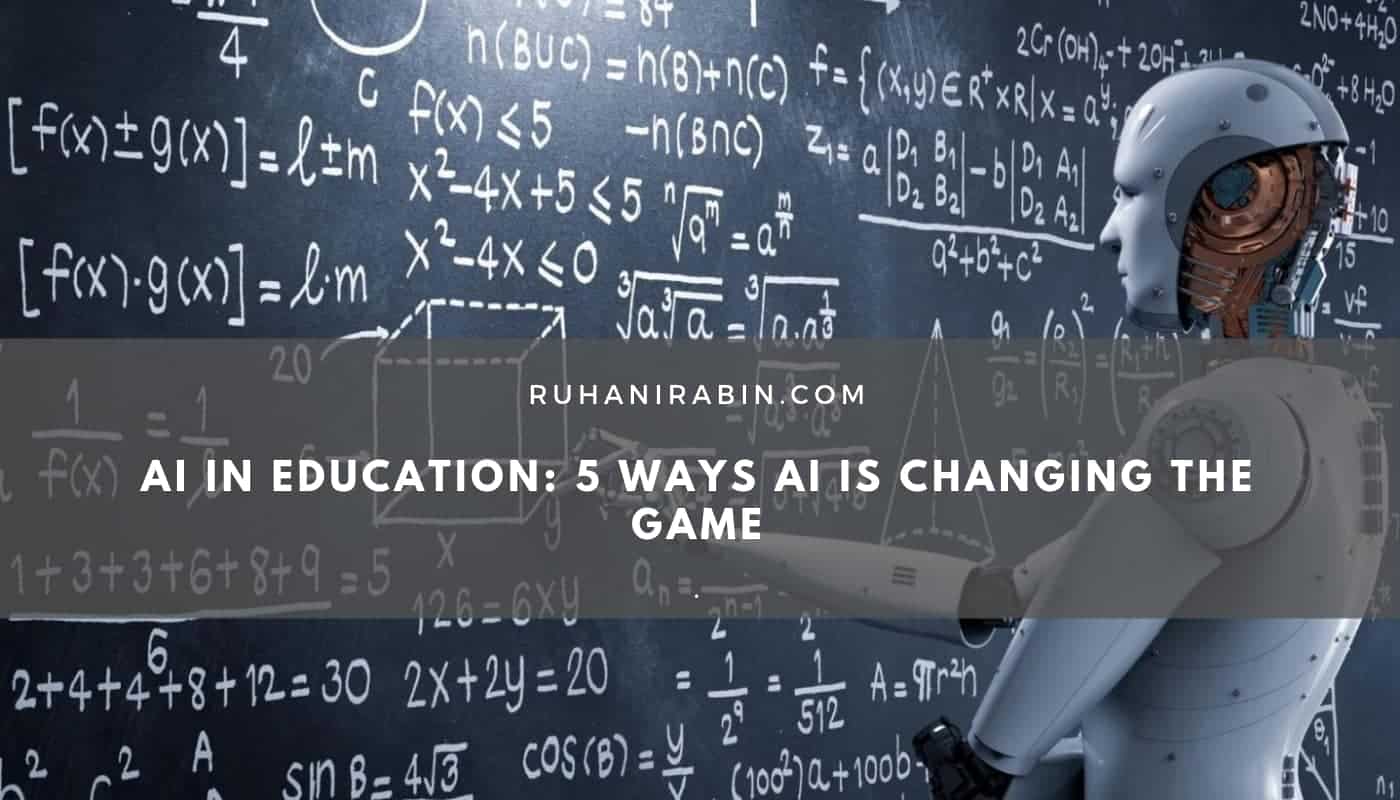AI in Education: 5 Ways AI is Changing the Game
Artificial intelligence is definitely changing the education industry, but in what ways? Let’s take a look at the most important ways AI is changing the game in education.

According to an eSchool News report on AI in education, AI in the education sector is expected to grow by 47.5% through 2021.
Although the classroom model hasn’t changed very much over the course of centuries, educators are always looking forward to embracing new technologies for making education more convenient and effective. One of them is AI.
Artificial intelligence is definitely changing the education industry, but in what ways? Let’s take a look at the most important ways AI is changing the game in education.
Get the Best Updates on SaaS, Tech, and AI
Personalizing Learning
According to a study by Rand Corporation, personalized learning greatly affects student achievement. It helps them learn more effectively and perform much better.
AI can help personalize the learning path for each student, helping them master their learning material efficiently and effectively. It can customize the material to cater to every learning style, thus helping students learn better.
AI can also tailor the material to their specific needs, as it can identify their strengths and weaknesses. Whenever an AI-powered tool detects certain difficulties a student may face, it can adapt the learning path and provide tips to help them overcome those obstacles.
AI tools can best do this when they’re integrated with an LMS. They can then track the progress of students and generate insightful reports, enabling educators to further customize their plans and materials.
These tools can also provide insights from quizzes, tests, and exams when integrated with online exam software. They can enable educators to see exactly which areas may be troubling for each student so that they can continue personalizing the learning experience.
Creating Smart Content

Smart content is referred to as the content designed to improve the learning experience, making learning easier and more convenient. AI can do this by condensing the learning material into easily-digestible, more comprehensible chunks of the most important lesson highlights, summaries, and flashcards. It can create digitized, customized textbooks that can help every student quickly achieve all the learning goals and objectives.
AI can also use textbooks to create useful audios and videos, as well as digital lectures and video conferences.
All of this enables students to learn much easier, without ever becoming bored and disengaged. They can master all the learning materials much quicker and reach the necessary academic goals.
Enhancing the Virtual Classroom
One of the advantages of AI in the education industry is enhancing the virtual classroom. Since AI tools can digitize textbooks and make them available online 24/7, students can seamlessly finish their education. They can access their learning materials anytime, anywhere, and on any device.
This is especially important for those unable to attend their classes, either because of an illness or because they live on the other side of the planet.
AI makes the most noticeable difference here when it comes to foreign-language learners. Language barriers can finally become a thing of the past because AI can accurately translate the learning materials.
Moreover, it can translate lectures in real time. When an educator is giving an online lecture, AI tools can provide real-time subtitles to help those speaking different languages. This is also incredibly helpful for students with hearing impairment.
Providing 24/7 Tutoring Assistance

This is also a very meaty benefit of AI in education. More and more AI-powered chatbots designed for the education sector are hitting the market, completely transforming education as we know it.
Chatbots are available 24/7, on any device. This means that students can seek online assistance anytime they need, without having to wait for the next lecture or office hours to consult with their educator.
They can simply ask their AI chatbot any question, and receive an instant, relevant answer. They can also get various sources of information to improve their learning, engaging in an interactive experience that helps them achieve their goals faster.
This is again important for students who are not able to physically attend classes, and it’s crucial for courses that are strictly online.
Automating Administrative Tasks
AI is also transforming the way educators do their job. AI tools have the power to automate various administrative tasks, taking a huge load off of educators’ shoulders.
Among many ways to use AI in education, teachers can use it to automate student assessment. AI can grade essays, homework, quizzes, tests, and any other assessment task.
For instance, if an educator uses an online quiz creator to produce quizzes for assessment, an AI tool can automatically evaluate the quiz results. When integrated with online exam software, AI tools can also quickly grade every exam and provide personalized feedback.
Needless to say, this saves educators a lot of precious time and helps them make their work more meaningful.
With more time on their hands, they can focus more on their students, making sure they fully grasp every concept and retain all the information. They can also dedicate more time to one-on-one sessions with students, providing each of them with real value.
The Takeaways
AI is definitely revolutionizing the education industry. Implementing AI-powered tools helps both educators and students achieve their goals and objectives, and create exceptional learning experiences.
If you want to help your students learn easier, faster, and smarter, be sure to jump on the AI bandwagon and join the ride. You’ll be able to reap the benefits of smart content, personalize the learning experience, simplify your administrative tasks, and enable your students to get the right assistance at the right time.
Robin is a Technical Support Executive. He is an expert in various LMS and employee training software. Currently, he is a resident learning management expert at ProProfs. In his free time, Robin enjoys cycling and sky diving.
FTC Disclosure: The pages you visit may have external affiliate links that may result in me getting a commission if you decide to buy the mentioned product. It gives a little encouragement to a smaller content creator like myself.


